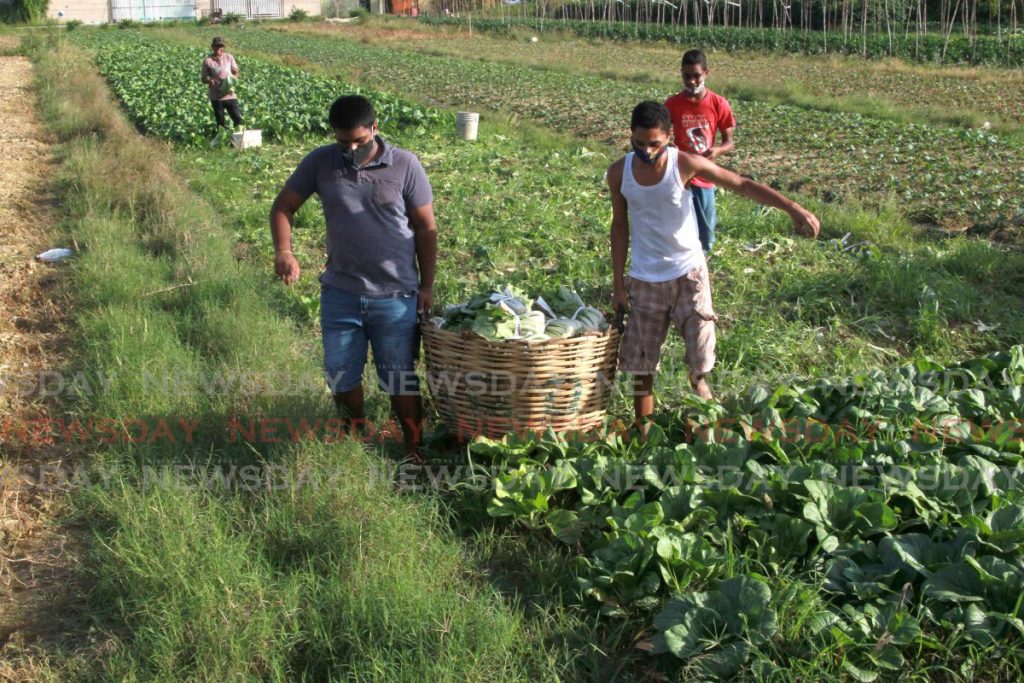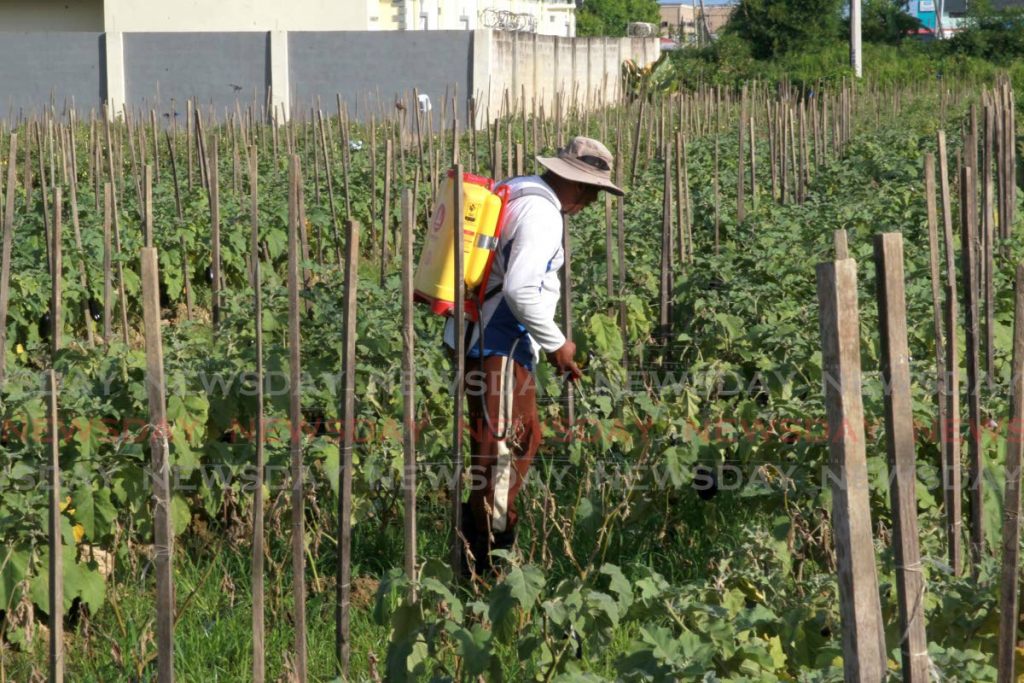Chairman: Namdevco not hand-picking farmers for food basket programme

CHAIRMAN of the National Agricultural Marketing and Development Corporation (Namdevco) Wayne Inniss is rejecting claims that they are hand-picking farmers to benefit from the $10 million monthly food boxes to feed families affected by the pandemic.
The claim was made by the president of the Agricultural Society of T&T (ASTT) Darryl Rampersad who said the collaboration between Namdevco and farmers was supposed to have benefited a large crop of farmers who, after losing their restaurant and school feeding clients due to covid19 restrictions, will still be able to sell produce.
“This is very commendable of the government, but I have been receiving complaints by some farmers that Namdevco is not rotating the farmers properly. They continue to take from a concentrated number of farmers. What is happening is that there are a few farmers that they continuously take from.”
In response, Inniss said when farmers are getting more than what Namdevco pays they shun Namdevco and chase the higher prices at the wholesale markets.
But when the wholesale markets offer less, they return, he said.

Innis said while Namdevco would not be in a position to accept all the farmers and may result in accusations of nepotism, favouritism and corruption. He said the notion of rotating farmers sounds good but farmers are their “own worst enemies” who will not accept being rotated.
Inniss explained how the price hounding by farmers affects their distribution and the prices of fresh produce on the open market.
He said: “For example, tomatoes, we have a fixed price of $10 a pound. Right now the wholesale price is $8 per pound. So the farmers will rush to Namdevco, which will create a shortage in the market and the price will increase and then when it increases they will return to the wholesale market to get the higher price.”
Inniss said when these things happen, Namdevco is forced to accept produce from any farmer who is available. Some framers, he said, then accuse Namdevco of favouritism when they are told that there is no need for their produce because they already bought from another supplier.
As part of the government's social programme, food baskets are being distributed to 25,000 families for the months of May to July with a possibility of it being extended to September. The distribution was announced by the Prime Minister on May 7, to assist vulnerable families as covid19 restrictions force several people to be unemployed and unable to feed themselves.
Contractual agreements may not be the answer to farmers price hopping since there is a risk that is overlooked, Innis said. He asked rhetorically what will happen if farmers are unable to supply a produce that is needed, should they be fined; or if Namdevco has enough of a particular produce, should they be obligated to buy more.
Addressing the claim of officials receiving kickbacks from farmers, Inniss said: “If they have information of that, that is fraud. Take it to the police.”

He denied that certain farmers are given preferential treatment. There are 3,000 certified farmers, he said, with over 20,000 non-certified farmers. Inniss said not only the registered farmers are used since they alone will not be able to provide for the 25,000 food boxes.
But while Rampersad he is aware that the programme could not benefit all farmers, he hoped more will benefit. He said his main issue was the management of the process.
The food boxes, which cost $400 each contains: five lbs of sweet potato, five lbs of dasheen, two bundles of dasheen leaves, five lbs of cassava, four lbs of plantain, five lbs of squash, five lbs of pineapple, ten units of citrus, four lbs of paw paw, four lbs of cucumbers, two lbs of bodi, three lbs of sweet pepper, ten units of hot pepper, five lbs of tomatoes, four lbs of melongene, ten units of ochro, and two four-lbs chickens.
Inniss said when one product is not available for whatever reason, they increase the amount of another. To extend the post-harvest life some items, such as cassava, pumpkin and sweet potato are frozen. He said eggs are now being supplied and will be replacing chicken with frozen tilapia for those who don’t eat chicken.
On May 21, Finance Minister Colm Imbert announced $30 million will fund 25,000 food baskets, which may be extended all the way through to September. The food baskets alone cost $10 million a month.
Inniss said to meet the mandate Namdevco increased their casual workers by “five-fold” who are placed on a rotation system and paid $275 a day. He could not say how many workers are currently employed as of Friday, as they were in the process of hiring more staff.
The food boxes are distributed every Monday, Wednesday and Friday to the 41 parliamentarians as well as faith-based organisations and non-government organisations.
While farmers wrangle with Namdevco over prices, thieves are picking away at their produce. Rampersad said with the threats of floods affecting harvest, the prices of some produce increase and attracts thieves. He said he has been working closely with the Praedial Larceny Unit of the Ministry of Agriculture Land and Fisheries.
“As far as I am aware, I have received several phone calls and there have been an increase in praedial larceny. Throughout the pandemic farmers have been asking me if there is a curfew how come we are losing produce.”
According to statistics provided by the police service there were 132 reports of praedial larceny in 2018. The following year there was an increase by four with 136 reports. Last year there were 175 reports and for the first five months this year, there were 36 reports.
In 2018, the Northern Division had the highest reports with 28 reports. The following year the Eastern Division had the highest figure with 27 reports and last year Tobago had the highest figure with 41 cases. So far, the thieves are back at the Northern Division with 9 reported cases.
During the pandemic, the months of July and October saw the highest reports of praedial larceny with 22 and 20 reports respectively. The first two months of this year had the highest reports so far with 12 in each month.


Comments
"Chairman: Namdevco not hand-picking farmers for food basket programme"